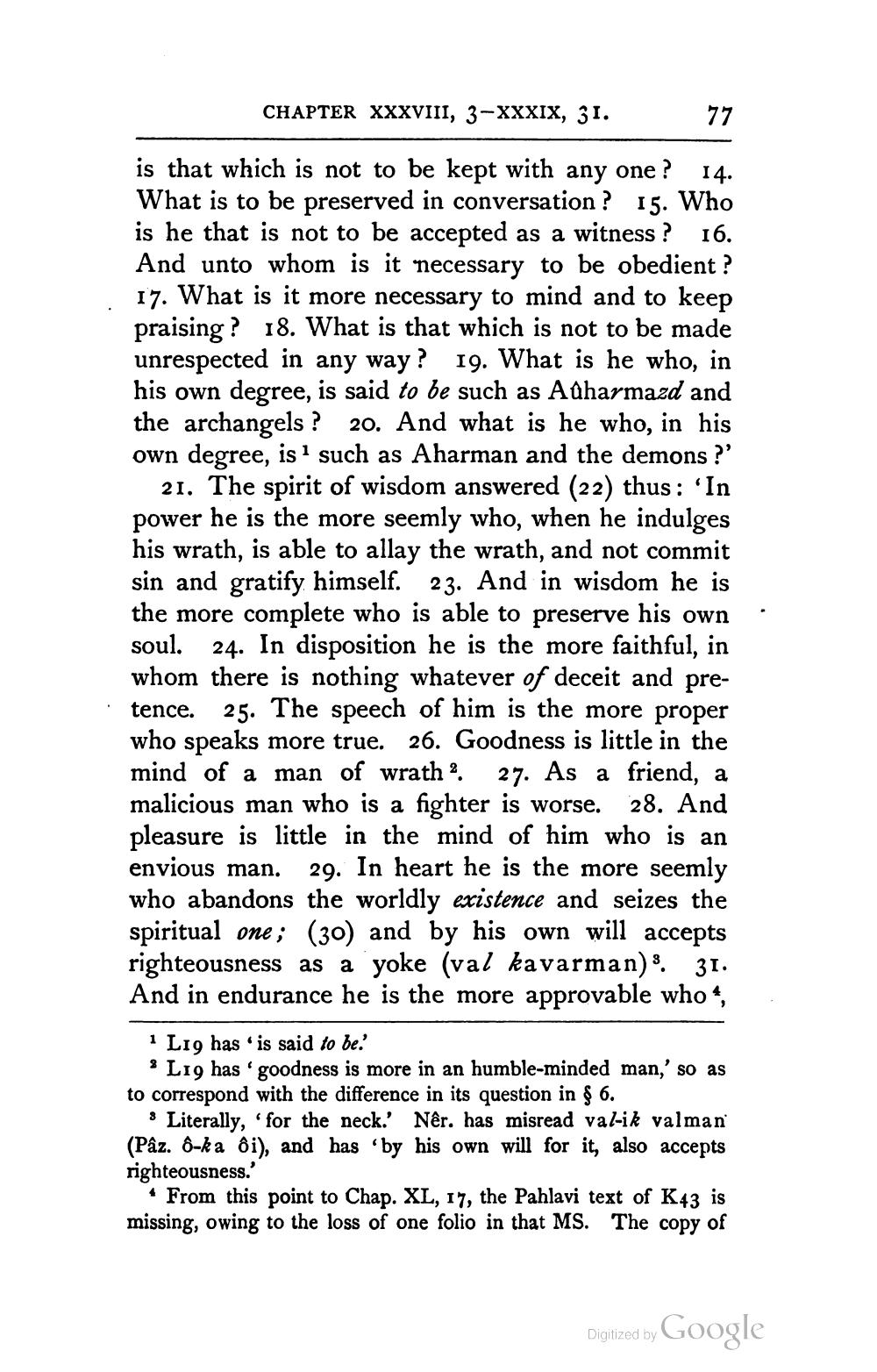________________
CHAPTER XXXVIII, 3-xxxix, 31.
77
is that which is not to be kept with any one? 14. What is to be preserved in conversation ? 15. Who is he that is not to be accepted as a witness ? 16. And unto whom is it necessary to be obedient ? 17. What is it more necessary to mind and to keep praising? 18. What is that which is not to be made unrespected in any way? 19. What is he who, in his own degree, is said to be such as Adharmazd and the archangels ? 20. And what is he who, in his own degree, is such as Aharman and the demons ?'
21. The spirit of wisdom answered (22) thus: 'In power he is the more seemly who, when he indulges his wrath, is able to allay the wrath, and not commit sin and gratify himself. 23. And in wisdom he is the more complete who is able to preserve his own soul. 24. In disposition he is the more faithful, in whom there is nothing whatever of deceit and pretence. 25. The speech of him is the more proper who speaks more true. 26. Goodness is little in the mind of a man of wrath 27. As a friend, a malicious man who is a fighter is worse. 28. And pleasure is little in the mind of him who is an envious man. 29. In heart he is the more seemly who abandons the worldly existence and seizes the spiritual one ; (30) and by his own will accepts righteousness as a yoke (val kavarman) s. 31. And in endurance he is the more approvable who 4,
1 L19 has is said to be.
* L19 has goodness is more in an humble-minded man,' so as to correspond with the difference in its question in $ 6.
Literally, for the neck. Nêr. has misread val-ik valman (Pâz. Ô-ka ôi), and has ‘by his own will for it, also accepts righteousness.'
* From this point to Chap. XL, 17, the Pahlavi text of K43 is missing, owing to the loss of one folio in that MS. The copy of
Digitized by Google




